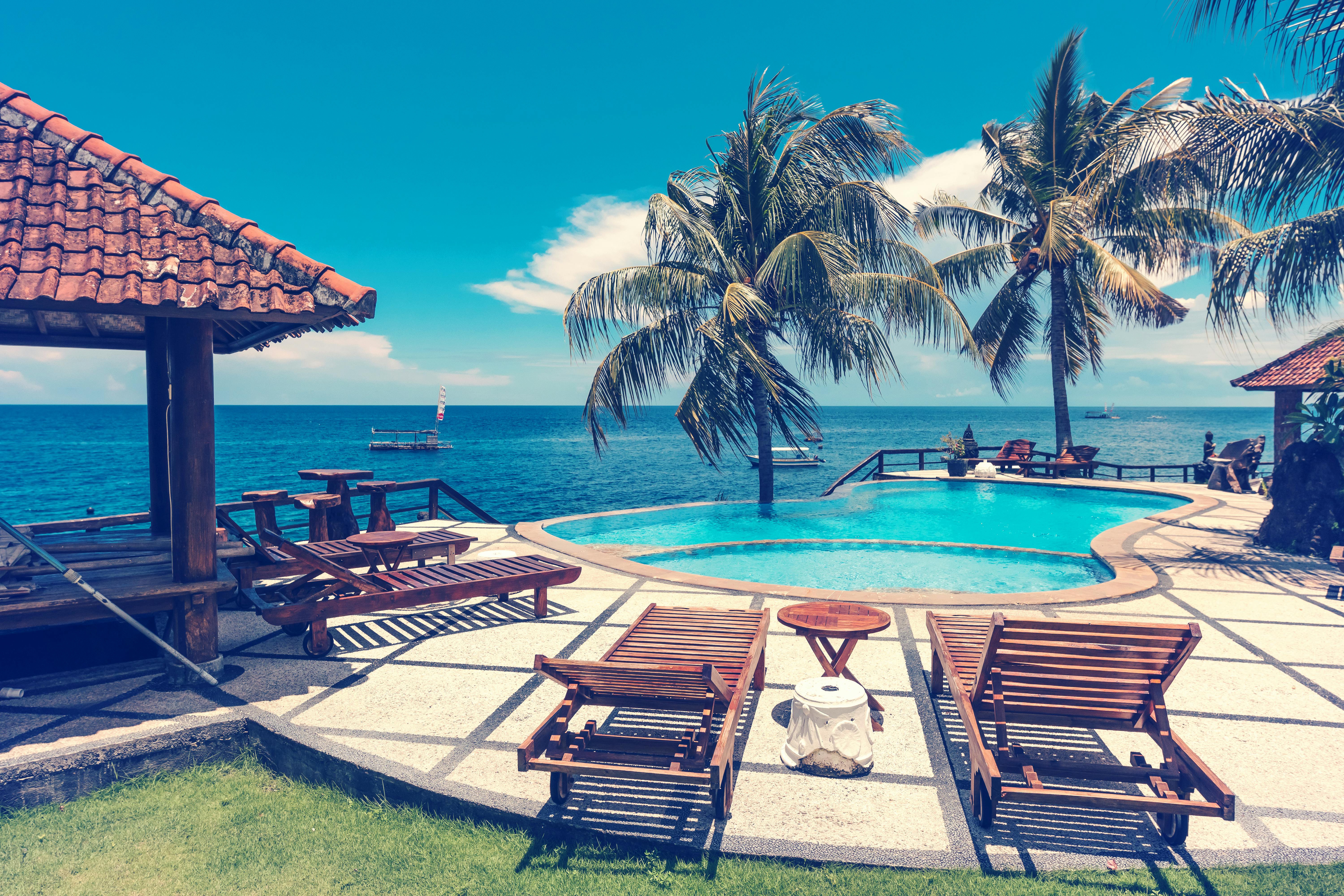Doctors escort their clients to vacation homes and luxury spa recovery centers. Standards and accreditation are an international effort.
The rich and famous have been making discreet trips out of the country for years to participate in pinch surgeries, rehabilitation and other medical endeavors. Now the average American can enjoy an international medical getaway and bring the whole family for less than the price of $40,000 for knee surgery in the United States.
The US is ranked 37th by the World Health Organization for medical care, and one million people traveled outside the US for medical-related services in 2008. A medical retreat at a tropical spa “luxury” seems to sound better to more and more people.
Need for operation – Will Travel
Medical tourism, coined as such more recently, has been around since the Romans traveled to heal themselves in mystical places. In modern terms, the main services traveled by are;
o Plastic and reconstructive surgery
o Aesthetics and general dentistry
or bariatric medicine
o Addiction treatment
o General surgeries
o Health and wellness
If you’re already one of the million travelers, or considering increasing those numbers, you’ll want to know what it all means.
Doctors from all over the world meet their clients on airplanes, in foreign hospital rooms, and in 5-star spa recovery centers that look like luxury hotels. Its alliance with international countries allows profitability and an exotic environment. Some may even be attracted to relaxed laws for more experimental procedures, such as stem cell research innovations that have yet to be approved in the US.
Today, providers such as Johns Hopkins, The Mayo Clinic, and Harvard (to name a few) have facilities abroad. According to BusinessWeek, Blue Cross & Blue Shield of South Carolina also entered into strategic alliances with seven overseas hospitals in 2008.
Your doctor may already be booking appointments in Guatemala, Thailand, Costa Rica, or the Philippines. Just ask. Thailand, for example, reported 1.5 million people for medical tourism in 2007. Doctors from all over the world are registered to practice there. The reach is global and so is the responsibility.
medical marketing
My recent medical tourism trip to Costa Rica included meetings with doctors, spas, government officials, and a call to action for accreditation in medical spas and spa-related centers. Costa Rica hosted its first Medical Tourism Congress last year and is quickly adapting to be a leader in the industry.
Flashy advertisements, incentives and medical tourism “add-on packages” draw much attention to foreign medical institutions and their spa and leisure counterparts. Medical tourism can bring economic growth, prestige, international alliances and goodwill. It also brings with it the big question of medical standards and medical spa accreditation. How will the exodus of foreign patients be addressed? The growth also makes for some stark contrasts with high spending to attract medical tourists with shiny hubs and airport upgrades compared to less public healthcare for its national population. For the sake of this article, let’s stick with the first question. Rules.
Patient Trust and Loyalty
A government-backed national call to action interested in accreditation is a great starting point and was the subject of my meeting with Massimo Manzi, the Chief of Staff of the Costa Rican Ministry of Competitiveness. In close collaboration with the International Tourism Board, we discussed the growth expectations in medical tourism and the need for accreditation standards for spa/medical spas.
International standards are demanded to effectively combine the crossing with the increase in medical tourism and its associated spa recovery centers. The spa has become the softer and more seductive side of medical tourism, and a large part of its growth. The need, particularly in Costa Rica, is to create a strong local incentive, bringing alliances and forming associations. Like the Costa Rican Spa and Wellness Association, which is expected to be inaugurated this year. After all, the goal here is competitiveness and ensuring the trust of potential customers.
Since most countries use their own methodology to ensure standards, where is the unification and how far does accreditation go globally?
According to the Medical Tourism Association, its “Quality of Care” program is working to achieve this and global medical tourism standards. “This project should help the growth of medical tourism and help patients feel more comfortable and confident when traveling abroad for surgery… our mission is to provide “transparency” in quality of care data in the world of medical tourism/global health.” Medical Tourism Association Worldwide, the main hospitals that provide these surgeries are already accredited by JCI, Joint Commission International, including CIMA and Clínica Bíblica in the capital of Costa Rica, San José. JCI ensures that hospitals meet the standards or close down. When it comes to spa accreditation, we are committed to delivering our spa quality expertise and driving the national call to action in Costa Rica. Spa standards, especially those related to medicine, must also be held to a high level of accountability or shut down.
Professional Comments
We spoke to the founder of the Day Spa Association, Hannelore Leavy, about the subject and her interest in working with various countries following the guidelines of the DSA, Day Spa Association or IMSA, International Medical Spa Association. According to her Hannelore, “these guidelines are the basis of our accreditation programs, which can be modified according to the local laws of each country’s government regulatory bodies.” DSA’s mission statement includes “…the continued elevation of professionalism and quality-driven services…” And IMSA’s mission statement “…continued elevation of a practical yet strict code of ethics based on the highest standards of care and regulated peer review”.
Continued lift is a good way to promote growth in the industry and a key differentiator that we will be working on in this case.
Statistics from the Costa Rica Tourist Board show approximately 250 operations related to health and cosmetic surgery that are performed each month in Costa Rican hospitals. Ninety percent of these are done in foreigners. This is not a surprise when you see the difference in cost.
Abdominoplasty: US$10,000 CR$4,500
Facelift: US$12,000 CR$4,700
With several major hospitals and over 500 spa facilities in Costa Rica, you’ll be spoiled for choice where you go. Hopefully one accredited by JCI and an international association specializing in spa standards. In this case, follow up on the accreditation of the Costa Rica Spa and Wellness Association, or the DSA/IMSA as partners worldwide.
It doesn’t matter if clients are motivated by obligatory medical issues or compulsive desires, health tourism is booming. That means a greater need for strict standards and stiff competition. Competition drives strategy. Strategy, creativity. Creativity, the ability to take shortcuts. Especially when underdeveloped countries can heavily depend on tourism and medical tourism figures for economic growth.
There are many associations that are dedicated to being the voice of this industry, including IMSA, the Medical Tourism Association and the International Chamber of Commerce of Health Tourism, which are making great strides in terms of standards and uniformity.
join the noise
This is an industry that has many layers of the onion, with more to discover. Let’s not let “medical imperialism” with intolerance of foreign doctors, a “rush” by prestigious US medical facilities to establish foreign satellites, or even fear of competition, overcome the real problems of patient care and an international effort to ensure standard hot tub/spa medical/medical tourism.
I can be an idealist, and I hope some of us remain, but I think we can continue to compel foreign officials in their desire for accreditation and create a balance for everyone involved. I will continue to promote the growth of standards and creativity without sparing any effort.
You can join the cause and join the noise by contacting Costa Rican officials about spa/medical spa standards and by ensuring our national call to action and launch of a local spa association. Send comments to government officials to promote your concerns and the need for an assessment system with a partnership and standard requests to;
o President of the ICT (Tourism Promotion Council of Costa Rica)- Carlos Ricardo Benevides
o Central Office: 011 506 2299 5800
o Minister of Tourism Planning – Antonio Farah
o Central Office: 011 506 2299 5293
o Minister of Competitiveness – Massimo Manzi
o Central Office: 011 506 2299 5293
In the meantime, enjoy your medical trips and don’t forget to enjoy some of the cultural aspects of the beautiful countries that receive foreign medical tourists. Spread the word. Make difference.


